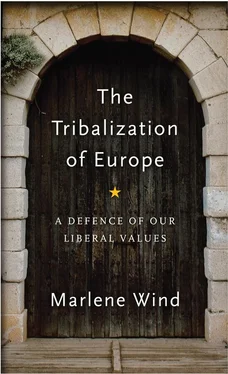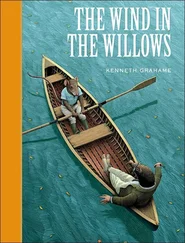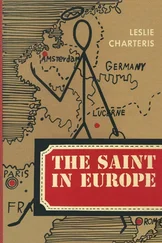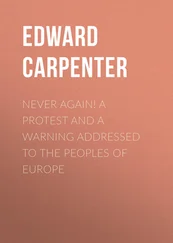At a time when (former) defenders of liberal values are increasingly silent, or have even joined the growing chorus of tribalists, this book is a wake-up call. By using clear, empirical examples pointing out the dangers of identity politics and the insidious logic behind it, the book encourages people to stand up for true democracy and rule of law in Europe. Democracy is not just “the will of the people” in simple numerical terms but is also about respecting fundamental values, minorities, a free and critical press, and independent courts.
There are several people I need to thank for helping me write this book. First of all, however, I have to thank Ana Rosa and Dolores Cruz Arroyo from Espasa.es for convincing me that this book just had to be written, after a thorough discussion of democracy, separatism, and Balkanization with Carles Puigdemont and my colleague Professor Christian Rostbøll at Copenhagen University in January 2018. I would also like to thank Professors Carlos Closa and Juan Mayoral for comments, corrections, and constructive criticism, as well as those many colleagues at iCourts and the Department of Political Science at the University of Copenhagen who patiently listened to my many thoughts on the subject of this book. I am also highly indebted to my research assistants Regitze Frederiksen, Louise Solgård Hvass, Amalie Lund Michaelsen, and Caroline Emilie Björkenheim Rebien for tireless work on copy-editing, commenting, and source-searching, and not least to Adrian Nathan West for magnificent language editing. Finally, yet importantly, I want to thank my family for their patience with me on this project. My husband Kristian patiently listened to my arguments and my two sons Carl and Jakob never failed to debate with me and test my arguments. I remain indebted to them for their continuous encouragement and interest.
Not so long ago, most Europeans believed that our common destiny was to exist as a Union with no internal borders. Nationalist sentiments, a destructive cold war, and restrictive ideologies had been eradicated and replaced by a united Europe, inclusive rights, values, and dreams held in common.
As the Soviet Union crumbled and the Berlin Wall fell, the large majority envisioned the world becoming a better place, with fewer hindrances to travel, trade, and communication, not more. The protection of basic rights, the rule of law, democracy, and economic prosperity would now flourish in the East just as they had in the West since the Second World War. The vision of Europeans living, working, and marrying across borders, of the unity in diversity that EU treaties speak so warmly about, was finally something that most people actually believed could be accomplished. It encapsulated the idea of a Europe that could and should consist of many different regional identities, with Scots, Catalans, Bavarians, Lombardians, and Sami living side by side with (and in) established nation-states.
Unity in diversity also suggested that Europeans – despite their ethnic and cultural differences – had acknowledged that only common aspirations for peaceful co-existence and cooperation could heal the wounds caused by forty-four years of division. In such a world, state borders would have become irrelevant. Separatists and secessionists would serve no purpose, and their raison d’être would have vanished. Why would anyone want to leave their mother nation to create small new city-states if borders had become obsolete? With the important – and extremely bloody – exception of the breakup of Yugoslavia in the 1990s, no one imagined that borders and bombastic territorial symbols would reenter the European mind, let alone enjoy a renaissance. When liberal democracy had finally triumphed over repressive competing ideologies, including nationalisms new and old, new attempts to mark boundaries would look old-fashioned, even ridiculous.
In the aftermath of the Cold War, scholars, too, were optimistic, speaking of “A New World order” 1and the “end of history,” 2with belief in liberal democracy, the rule of law, human rights, and freedom of speech replacing divisiveness and creating a (global) community without partitions.
In Europe 2004 – only fifteen years after East German border guards opened the Berlin Wall by accident – eight new democracies from the former Soviet bloc embraced these ideals and joined the EU. For many Central and Eastern Europeans, the European Community represented hope for the future and for a better life without repression. They had escaped the tutelage of the Soviet Union and the Iron Curtain, which had cut them off from the free world for so long. For more than forty years, becoming part of a borderless, open, liberal Europe had been an unobtainable dream. Now it was a reality.
***
All this now feels like ancient history. What we have witnessed in Europe over the past five, ten, or fifteen years is an entirely different development from the one described above. Many Europeans seem to have given up on their universalist aspirations and are pulling up the drawbridges – returning to the tribe. The rhetoric of “us” and “them” has returned and identity politics is a winning argument in elections and referenda.
According to a prestigious global research project 3measuring the state of democracy in the world, Europe is the place where liberal democracy has declined most precipitously in recent years. Probably because democracy here had come to be regarded as a given and because we have become incredibly bad at recognizing when important democratic institutions are being gradually undermined. According to the study, as many as six European countries can no longer be classified as liberal democracies but should instead be referred to as hybrid regimes or semi-autocracies. These countries may hold elections, but no longer heed those basic principles that have defined us as European democratic polities since the Second World War.
The main question addressed in this book is: are we witnessing a general tribalization of Europe? Or is it sporadic declines that can be reversed? I will try to argue that the answer depends not only on where we look, but also on the extent to which we are willing to face our own demons. What is undoubtable is that the most original, successful, and innovative supra-statist project that the world has known, the European Union, is in trouble. It – and not least the values it represents – needs new defenders. This book is such a defense.
So, what is tribalization? As I understand it, tribalism is a phenomenon in which cultural, ethnic, and nationalist groupings of various sizes and organization emphasize themselves as the “true” tribe, nation, or culture while verbally or in practice excluding named “others” from being a part of the community. At the same time, they strive increasingly to regress from internationalist structures, if not formally then in practice, by no longer recognizing previously adopted laws, conventions, and common ground rules. If tribalization is a long-lasting trend, as much evidence suggests, it could eventually splinter the continent into hundreds of more or less homogeneous enclaves, undermining the Europe we know today. A Voltairean nightmare, as some would call it, recollecting the Holy Roman Empire’s resolution and the patchwork of small entities in constant infighting.
Despite the stunning success of European integration over the past six decades, there seems to be an increasing temptation – even among those who consider themselves progressive – to rally around new exclusionary identities rooted in a more or less fundamentalist version of the nation-state or in regional separatist movements. What do these projects have in common? They all represent – despite their differences – a tireless yearning to stand in opposition to neighboring identities. Chasing enemies and creating opponents is clearly far from a new phenomenon, but the regression we are experiencing in Europe in these years is something new. And now the enemies are apparently not just those who do not share your culture, religion, or identity, but also liberal elites, the EU and the liberal values we have jointly cherished since the Second World War.
Читать дальше












